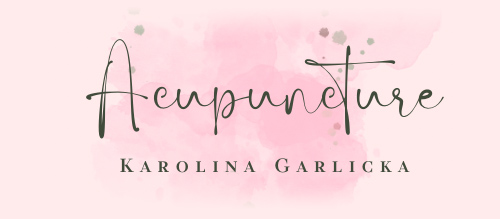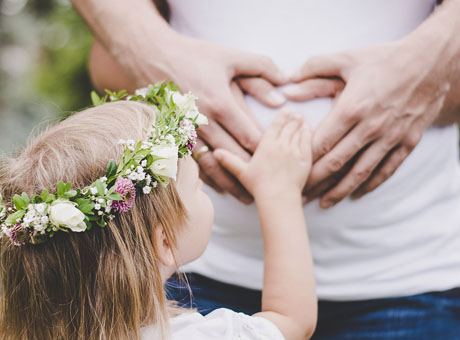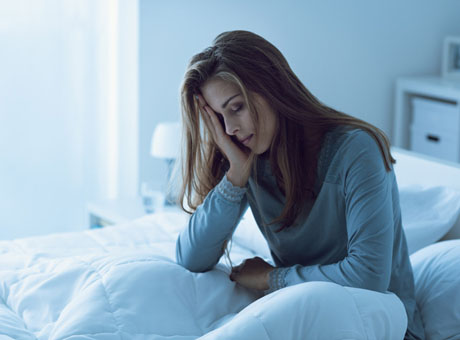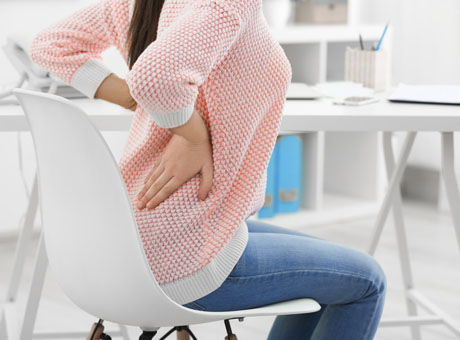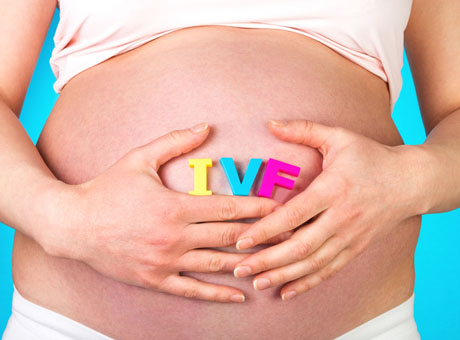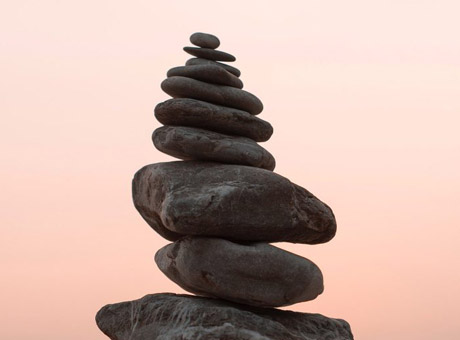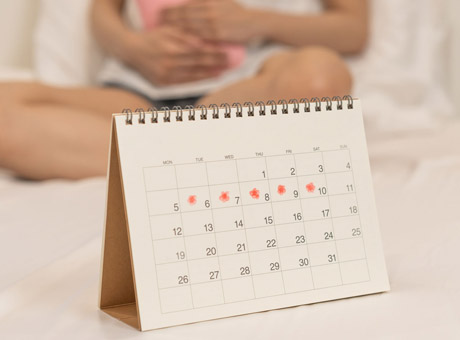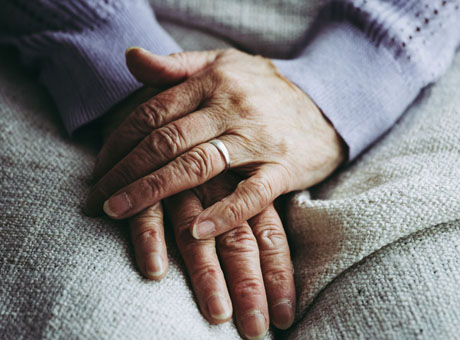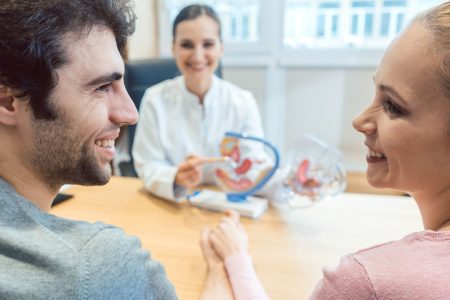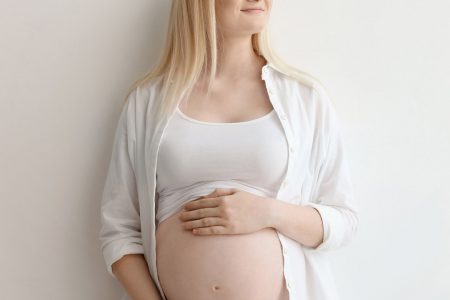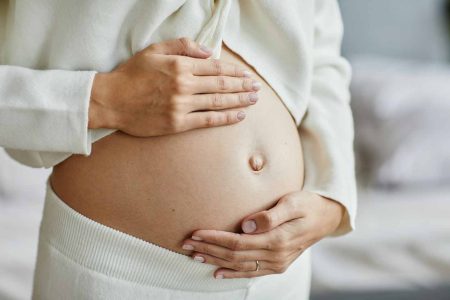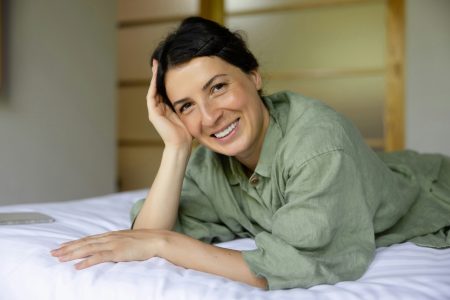Acupuncture in Henley-on-Thames
Karolina Garlicka, Acupuncturist & Reflexologist in Henley-on-Thames
I specialise in providing personalised acupuncture and reflexology treatments designed to help you cultivate optimum health and wellness.
Are you struggling with fertility issues, grappling with anxiety, or living with chronic pain? Are stress and insomnia disrupting your life?
My aim is to help restore balance, promote natural healing, and rejuvenate your body and mind. I believe in an integrative approach to health and wellbeing, combining ancient traditional practices with modern scientific understanding.
If you would like more information about how acupuncture could help you please call 07766 735 714 or click the button below.
My expertise in acupuncture is complemented by a passion for reflexology, which together offer a powerful and holistic treatment regimen. My acupuncture clinic in Henley-on-Thames is founded on the principles of compassion, integrity, and professionalism, and I’m dedicated to providing personalised care in a welcoming and soothing environment.
I combine my training to give you the best of both worlds. I use the Chinese Medicine approach to tailor treatment according to your signs and symptoms, and I also take into account all your western medical results to support your treatment. I hold a BSc Degree in Chinese Medicine and Acupuncture from Kingston University.
I include nutritional and lifestyle advice if needed. I am on this journey with you.
Learn more about the acupuncture and reflexology services I provide at my acupuncture clinic in Henley-on-Thames and discover how we can guide you on your journey to better health and tranquillity.
Treatments at my acupuncture clinic in Henley-on-Thames
General Conditions
- Insomnia
- Back pain
- Neck and Shoulder pain
- Anxiety
- Arthritis
- Parkinsons
- General Wellbeing
- Perimenopausal and Menopausal Symptoms
- Cancer patients
- Supporting patients during cancer treatment, helping with side effects of chemotherapy
Reflexology
- General reflexology
- Reflexology for stress
- Fertility reflexology
- Maternal and post natal reflexology
- Reflexology during menopause
Fertility & Pregnancy
- Acupuncture to aid pregnancy
- Acupuncture for IVF
- Acupuncture for irregular periods
- Adenomyosis
- Amenorrhea
- Abdominal sacral massage
- PCOS
- Endometriosis
- Painful periods
- Irregular periods
- Heavy periods
What can acupuncture be used for?
Acupuncture is used for a wide variety of health conditions. Some of the more commonly treated conditions include chronic pain, migraines, tension headaches, osteoarthritis, fibromyalgia, postoperative pain, asthma, stroke rehabilitation, menstrual cramps, carpal tunnel syndrome, general well being and more. It’s also often used for stress management and overall wellness.
What are the benefits of acupuncture?
Many people use acupuncture to relieve a variety of ailments. The benefits of acupuncture can vary widely depending on the focus and the condition being treated, but some of the more common benefits include:
Chronic Pain Relief
Acupuncture has been studied extensively for its role in managing various forms of chronic pain. For example, a systematic review published in the Archives of Internal Medicine in 2012 found that acupuncture was effective for the treatment of chronic pain, including back and neck pain, osteoarthritis, and chronic headaches. The study concluded that acupuncture is a reasonable referral option for patients with chronic pain.
Reduced Migraines and Headaches
Acupuncture can be effective in preventing migraines and tension headaches. A Cochrane review of 22 trials involving 4985 people in total showed that acupuncture could reduce the frequency of headaches in individuals with frequent migraines.
Mental Health Support
Acupuncture can play a supportive role in managing mental health conditions like depression, anxiety, and post-traumatic stress disorder (PTSD). Some studies suggest that acupuncture may stimulate the production of endorphins and serotonin, natural mood boosters, in the brain.
Management of Menopausal Symptoms
Some women find relief from menopausal symptoms such as hot flashes, mood swings, and insomnia through acupuncture treatment.
Support for Sleep Disorders
Some research suggests that acupuncture can be beneficial in treating sleep disorders such as insomnia, possibly by affecting the production of neurotransmitters that influence sleep cycles.
Improved Digestion
Acupuncture may help regulate digestive function and alleviate symptoms associated with gastrointestinal disorders. This can include conditions such as chronic constipation, irritable bowel syndrome, and acid reflux disease.
Reduced Symptoms of Osteoarthritis
Acupuncture may reduce pain and improve physical function in patients suffering from osteoarthritis, particularly osteoarthritis of the knee.
While these are potential benefits, it’s important to note that individual responses to acupuncture can vary, and effectiveness can be influenced by a variety of factors, including the specific health conditions being addressed, and the overall health and lifestyle of the patient.
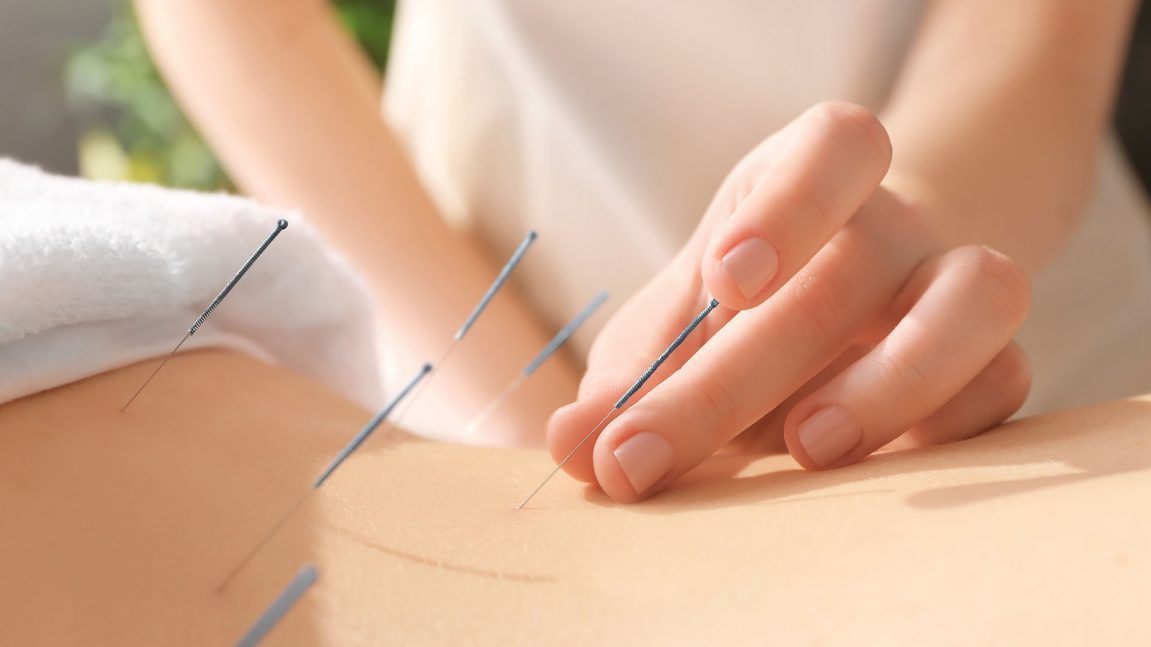
The history of acupuncture
Acupuncture is an ancient form of medicine that originated in China over 2,000 years ago, and it is one of the oldest and most commonly used systems of healing in the world. Many ancient Chinese texts, including the “Yellow Emperor’s Inner Canon” dating from around 100 BC, discuss the use of acupuncture for a variety of health conditions.
Traditional Chinese medicine, including acupuncture, is based on an energetic model rather than the biochemical model of Western medicine. The ancient Chinese proposed that energy, or “Qi” (pronounced “chee”), circulates throughout the body along specific pathways, or “meridians”. Health is achieved when one’s Qi is in balance, and disease or illness represents an imbalance in one’s Qi.
Is acupuncture safe?
When performed by a trained, competent practitioner, acupuncture is generally considered safe. However, like any medical procedure, it can have risks. The most common side effects include soreness, minor bleeding, or bruising at the sites where the needles are inserted. Serious complications are rare but can include infections or punctured organs.
What does acupuncture involve?
During an acupuncture session, the practitioner will first carry out a physical examination and inquire about your health history. They will focus on your pulse and the shape, colour, and coating of your tongue. This is because, in traditional Chinese medicine, these are important indicators of your overall health and energy flow.
After assessing your condition, the acupuncturist / practitioner will insert thin, sterilised needles into specific points along your body’s meridians. These fine needles are typically left in place for up to 30 minutes. Most people feel minimal discomfort when the needles are inserted. Once the needles are in place, you might feel a mild tingling or a sensation of fullness, which is generally regarded as the Qi being activated.
After the needles are removed, some people feel energised, while others feel relaxed. The number of treatments needed depends on the individual and the condition being treated – acute issues may resolve after one or two sessions, while chronic conditions may require multiple treatments over several weeks or months.

Acupuncture for fertility
You are not alone, currently 1 in 7 couples are struggling to conceive, either trying naturally or through IVF.
The journey to becoming parents is not easy for many people. I am a trained fertility support acupuncturist, and I want to be with you on this journey by getting your mind and body into optimal health to become parents. I care about your fertility as much as you do.
Because of this, I offer a range of ‘acupuncture for fertility’ services. These include:
IVF Assistance: If you are struggling to conceive with IVF, acupuncture treatment might be able to help. I offer treatment for males and females, with treatment tailored to both genders. This will give you the best chance of conceiving.
PCOS: Polycystic ovary syndrome (PCOS) means having longer menstrual cycles, ovulating later than day 14-20, or even a lack of ovulation. You may also experience insulin resistance, which can cause issues with ovulation and potentially higher levels of male hormones. This can make it harder for you to get pregnant. Women who suffer with PCOS and are going through IVF are at higher risk of Ovarian Hyperstimulation Syndrome (OHSS). Acupuncture may help with the side effects of OHSS.
Turning Breech Babies: This procedure will ensure that your baby’s head is facing the right way when it is time to give birth.
Painful Periods, Endometriosis: I can help you overcome the heavier bleeding on your period as well as try to manage pain.
Acupuncture has been increasingly recognised for its potential benefits in the realm of fertility and In Vitro Fertilisation (IVF) support. More high-quality, larger-scale studies are needed to confirm these findings. Here’s what we know so far:
Acupuncture may enhance fertility by regulating hormones. Acupuncture may influence the release of neurotransmitters, which could in turn affect the release of reproductive hormones that control ovulation. Acupuncture might also help to increase blood flow to the uterus and ovaries, which can aid in the development of the uterine lining and follicles, and in the process of ovulation.
Chronic stress can impact fertility. Acupuncture has been shown to have a calming effect on the nervous system, which might help to reduce stress hormone levels.
There is some evidence that acupuncture could improve the success rates of IVF. Potential benefits include Improving Embryo Implantation. Some research suggests that acupuncture might help to increase blood flow to the uterus, which could enhance the chances of successful implantation during an IVF cycle. Some patients find that acupuncture can help to manage side effects from fertility drugs used during IVF, such as bloating, mood swings, and nausea.
IVF can be a highly stressful process. Acupuncture may help to reduce stress and anxiety, which in turn could potentially enhance fertility. Acupuncture should be considered a complementary therapy in the process of fertility treatment, not a substitute for traditional medical care.
Acupuncture during and after pregnancy
Acupuncture can be used throughout the duration of your pregnancy. I can support you mentally and help with symptoms like morning sickness, insomnia and lower back pain. I also offer treatments that will help you prepare for a healthy birth. I do offer post pregnancy care. Your acupuncture care shouldn’t stop when you give birth. I can help your body overcome the effects of giving birth. I can also support your mental health during this period, reducing the chance of post-natal depression.
How Does Acupuncture Improve Fertility?
There have been several studies into the efficiency of acupuncture for fertility. In one study, the British Acupuncture Council found that those who received acupuncture when undergoing IVF had a clinical pregnancy rate of 52.6 percent. This can be compared to a clinical pregnancy rate of 32.8 percent in the control group, who did not receive acupuncture treatment. This proves that acupuncture can be an effective way of boosting your fertility.
There are several ways in which acupuncture treatment can increase your chances of getting pregnant. Firstly, acupuncture can stimulate blood flow to your uterus, which in turn, can improve the thickness of the endometrial lining. This increases the chances of a successful embryo implantation.
Acupuncture may also help to regulate your fertility hormones. Acupuncture can help to reduce your stress levels, strengthen your immune system, and control your pain by stimulating the release of beta-endorphins. In the male, acupuncture can help ensure that healthy sperm are produced.
First session: acupuncture in Henley-on-Thames
In my first session with you, I will ask about your current efforts to conceive. I will take full details of your medical history, and will ask you questions about your lifestyle, nutrition and stress levels.
All questions are carefully designed to help me to diagnose you in terms of Traditional Chinese Medicine. You may feel that some of the questions are irrelevant and quite intimate, but I need to ensure I do not miss anything. When you come in for your consultation, please bring in any information you may have about any medical conditions that affect you, and also any blood test results.
I may recommend diagnostic tests, such as hormone checks – if needed these will need to be done at a certain time in your cycle.
I may also recommend practitioners for Western medical treatments like nutritional support, endocrinology, or urology. I only recommend practitioners, doctors and therapists who specialise in fertility and gynaecology. I choose them carefully as I have your best interests at heart, and want you to be successful in your quest to become parents.
I am the only fertility acupuncturist in the Henley-on-Thames area that holds a Diploma in Advanced Fertility from renowned lecturer Naava Carmen.
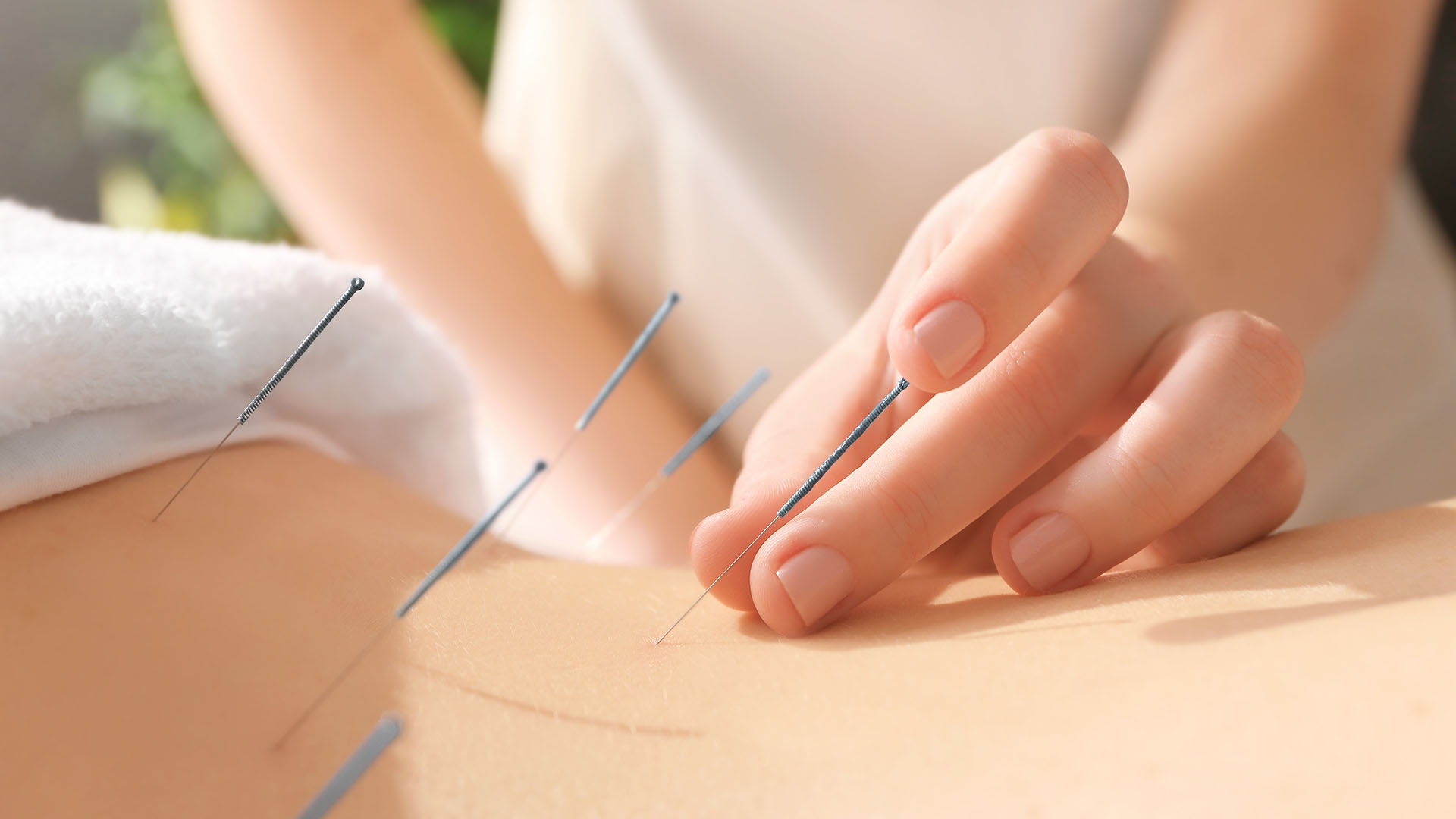
Acupuncture in Henley-on-Thames
Looking for natural support for pain, stress, or chronic health concerns? As an experienced acupuncturist in Henley-on-Thames, I offer personalised acupuncture treatment designed to work with your body and promote long term wellbeing.
How Acupuncture Works
Acupuncture involves inserting needles into specific points on the body to stimulate sensory nerves, improve circulation, and trigger the release of the body’s natural painkillers. This safe, complementary therapy can help manage a wide range of health issues and emotional imbalances.
Using acupuncture needles, all sterile needles, I target key acupuncture points based on your symptoms. You may feel a slight tingle or dull ache during needle insertion, which is a normal and therapeutic response.
What to Expect
During your first acupuncture session, I will take a full health history and tailor a plan around your needs. Treatments involve the use of very thin needles, placed gently in the skin, muscles, or connective tissue. The thin needles I use are designed for comfort and precision.
The number of treatments needed varies, depending on whether we are addressing short term discomfort or a long term condition.
What Acupuncture Helps With
Many people use acupuncture to:
- Ease muscles tension
- Improve sleep
- Reduce stress and anxiety
- Balance hormones
- Aid fertility
- Relieve pain
- Support recovery from illness
I also offer auricular acupuncture, which targets acupuncture points on the ear, often helpful for anxiety, insomnia, and detox support.
Are there different types of acupuncture?
Yes. We have Traditional acupuncture and western medical acupuncture.
Western medical acupuncture is used mostly by physiotherapists, osteopaths, chiropractors and GP’s and is a modified form of Traditional acupuncture. Western medical practitioners train in very short courses in acupuncture (usually over a matter of a couple of weekends) and learn to treat a small group of mostly physical ailments.
Traditional Acupuncturists train over much greater lengths of time, usually in 3 – 4 year degrees and learn to focus more holistically, learning how to help the patient as well as just their symptoms.
Within traditional acupuncture there are two common styles of practice, TCM and Five element acupuncture. I trained at an integrated college learning both.
Why Choose Me?
As a qualified acupuncture practitioner and holistic practitioner, I use both traditional methods and modern insight to help my patients. I focus on the whole body, not just symptoms, and integrate acupuncture with other treatments where needed.
If you are seeking an acupuncturist in Henley-on-Thames who blends skill, empathy and precision, I would be happy to help.
Book a Session
Acupuncture is safe, effective, and widely used to restore balance and health. Whether you are new to it or adding it to other treatments, I will guide you through the process.
Get in touch today to book your consultation and begin your tailored treatment journey.
